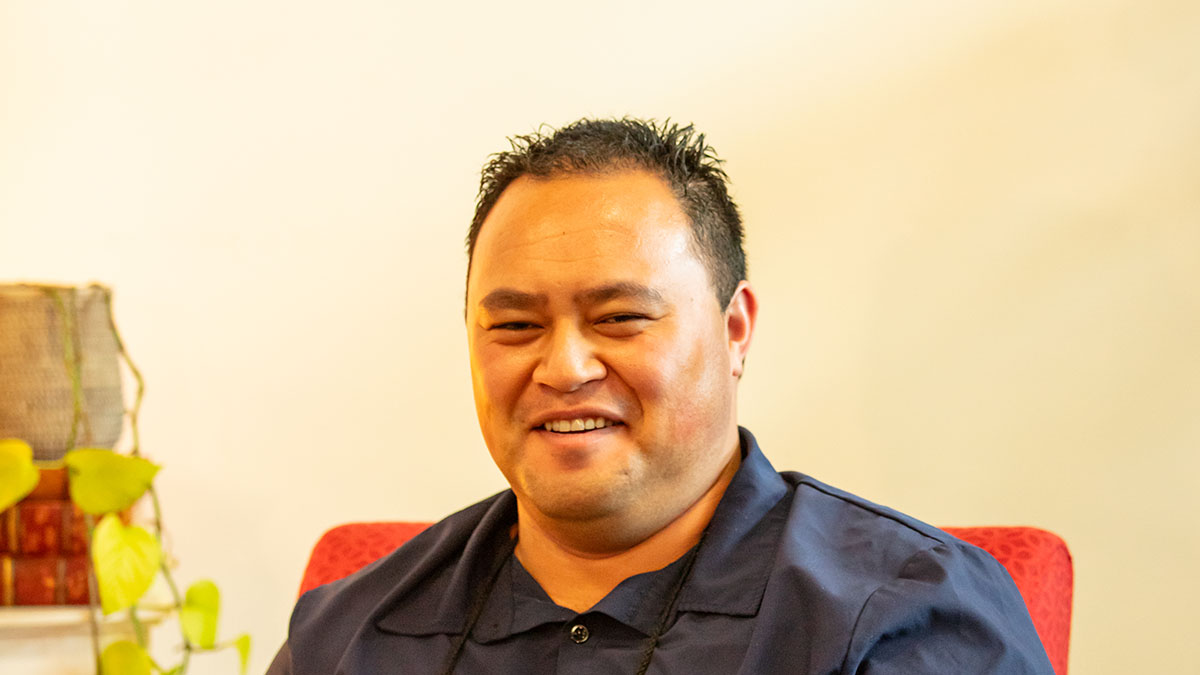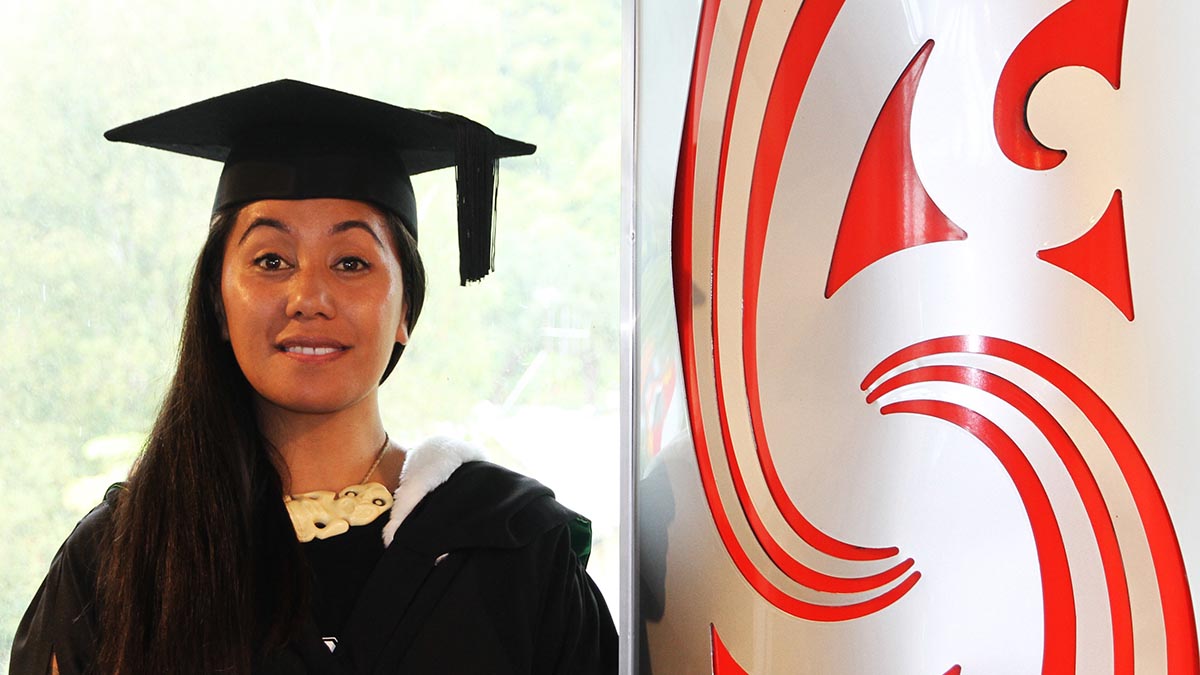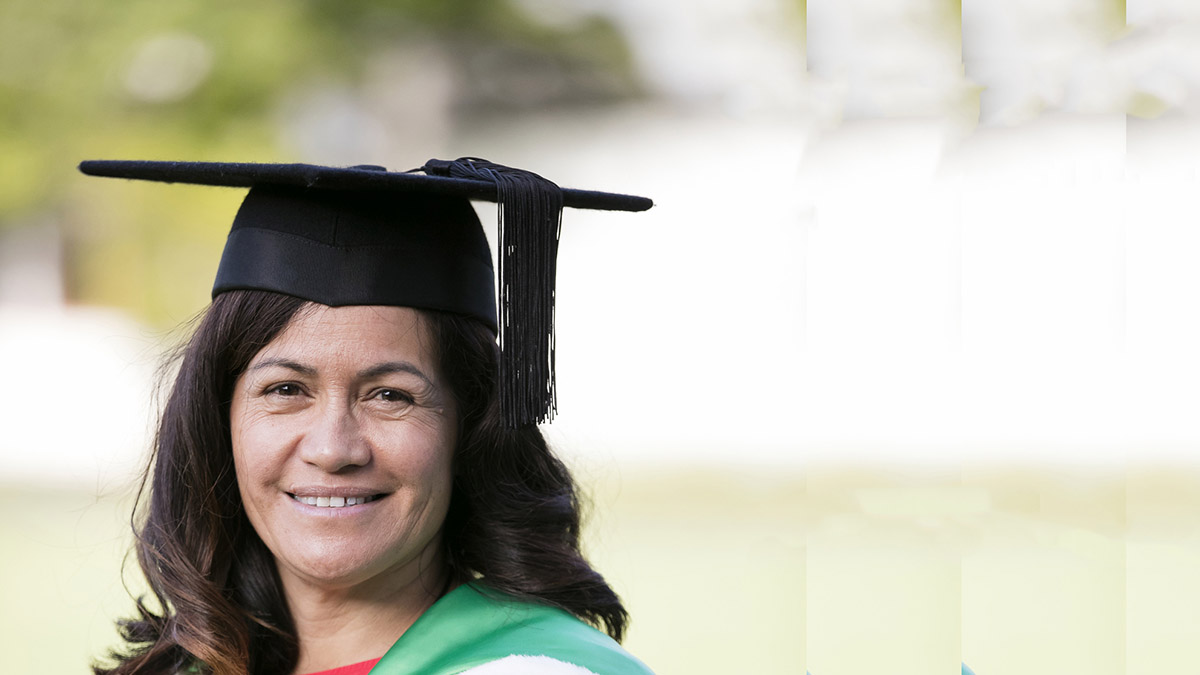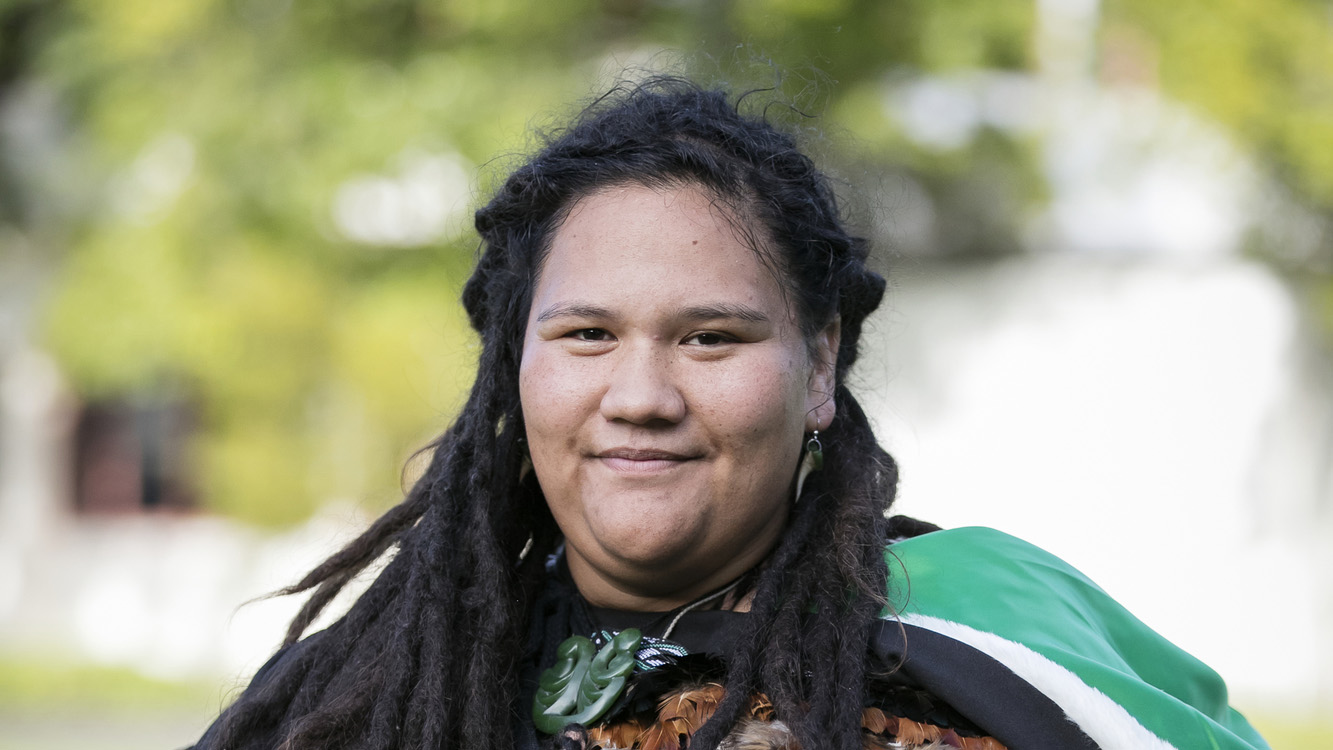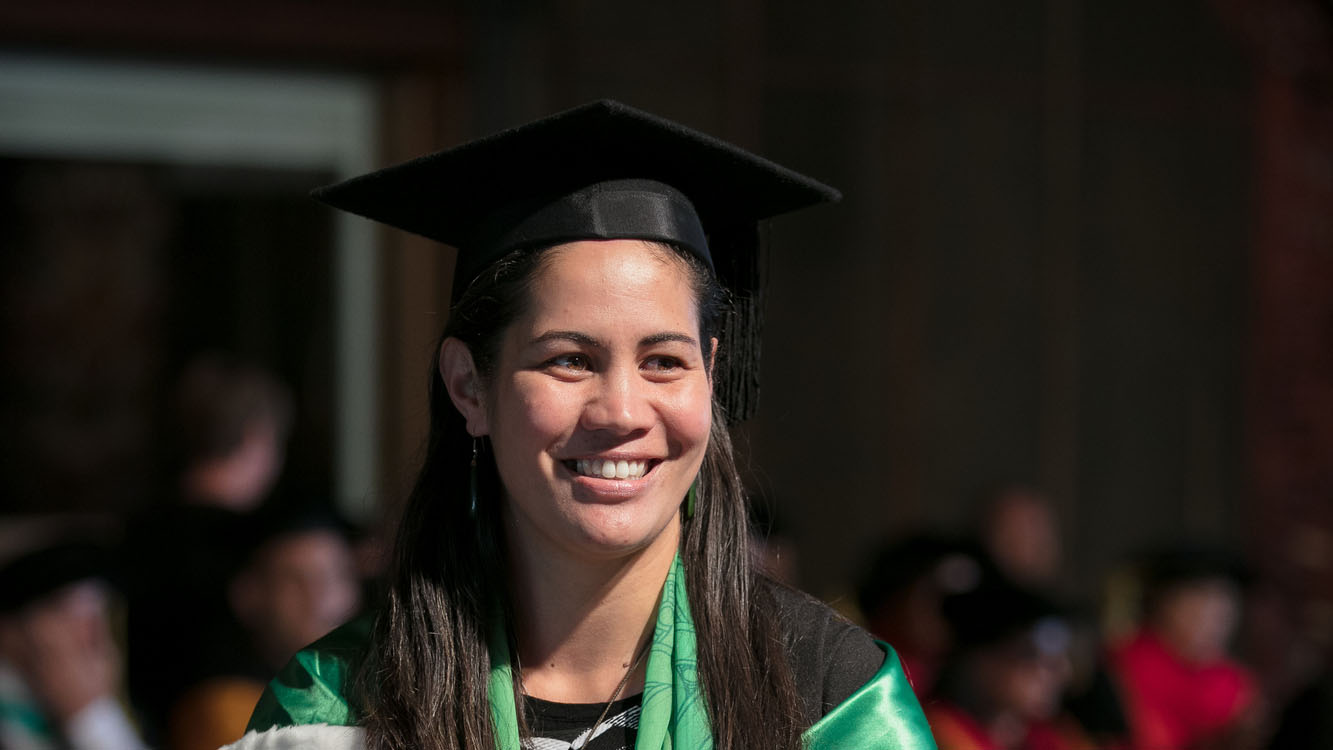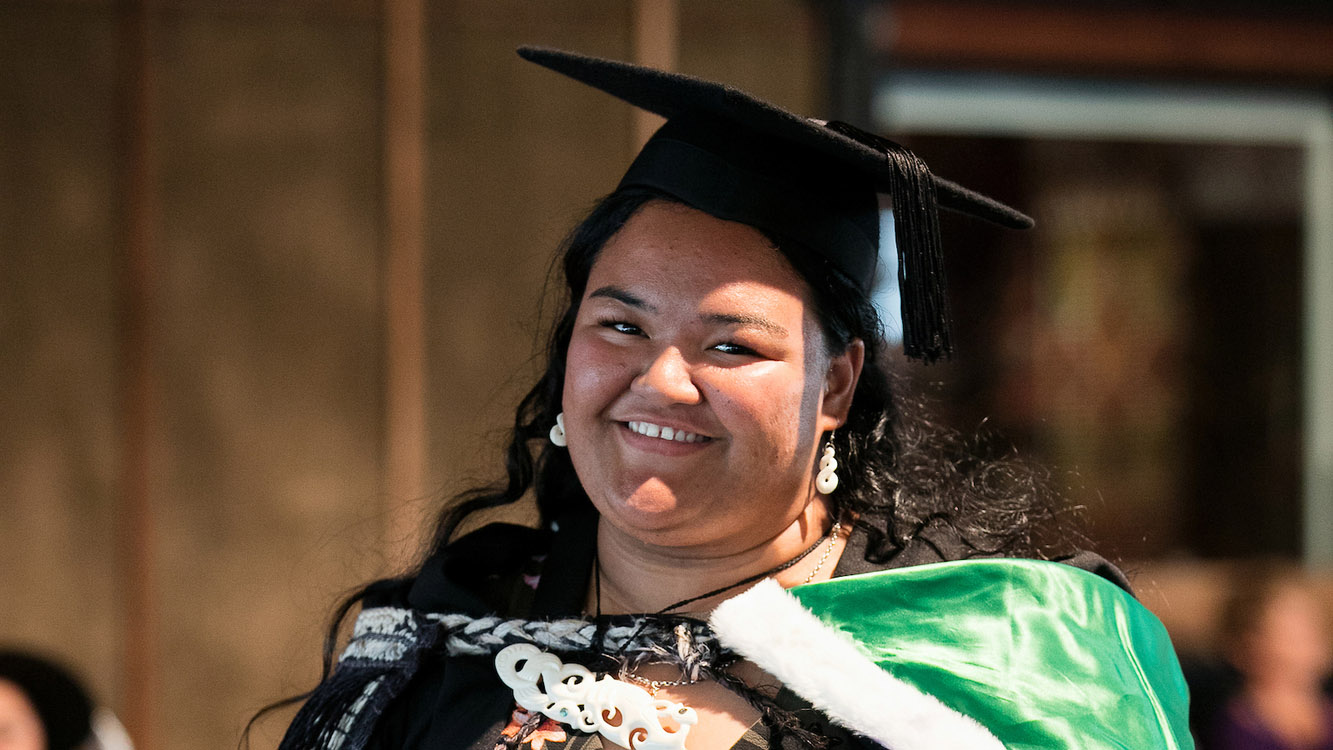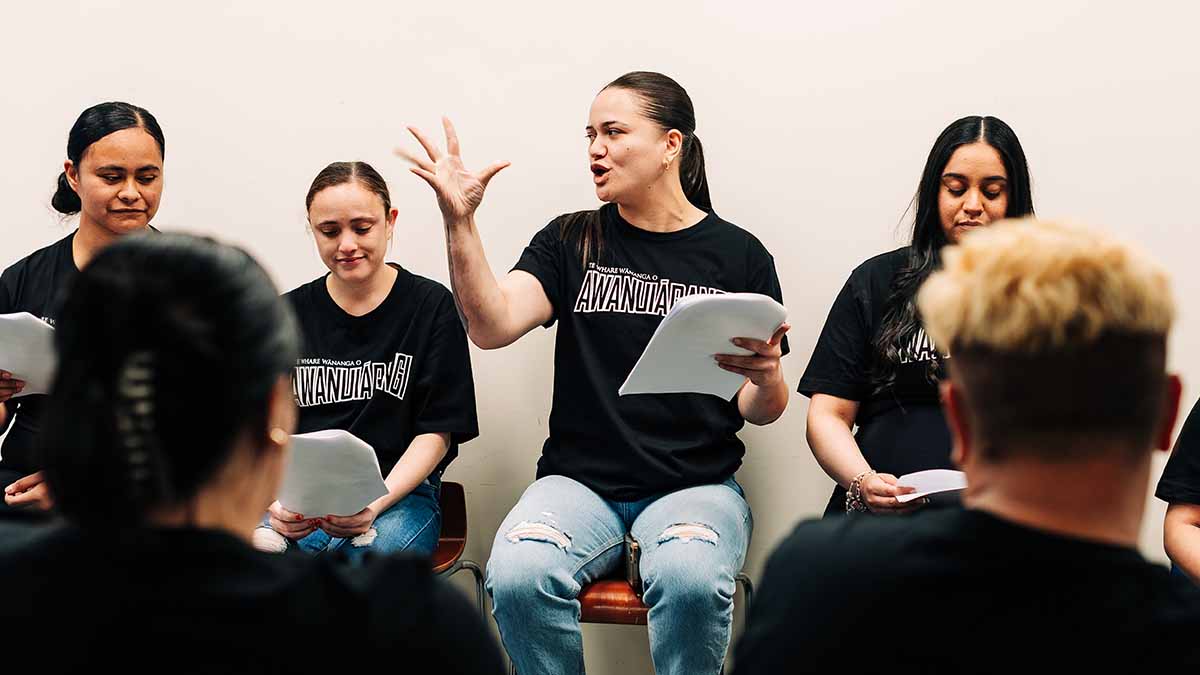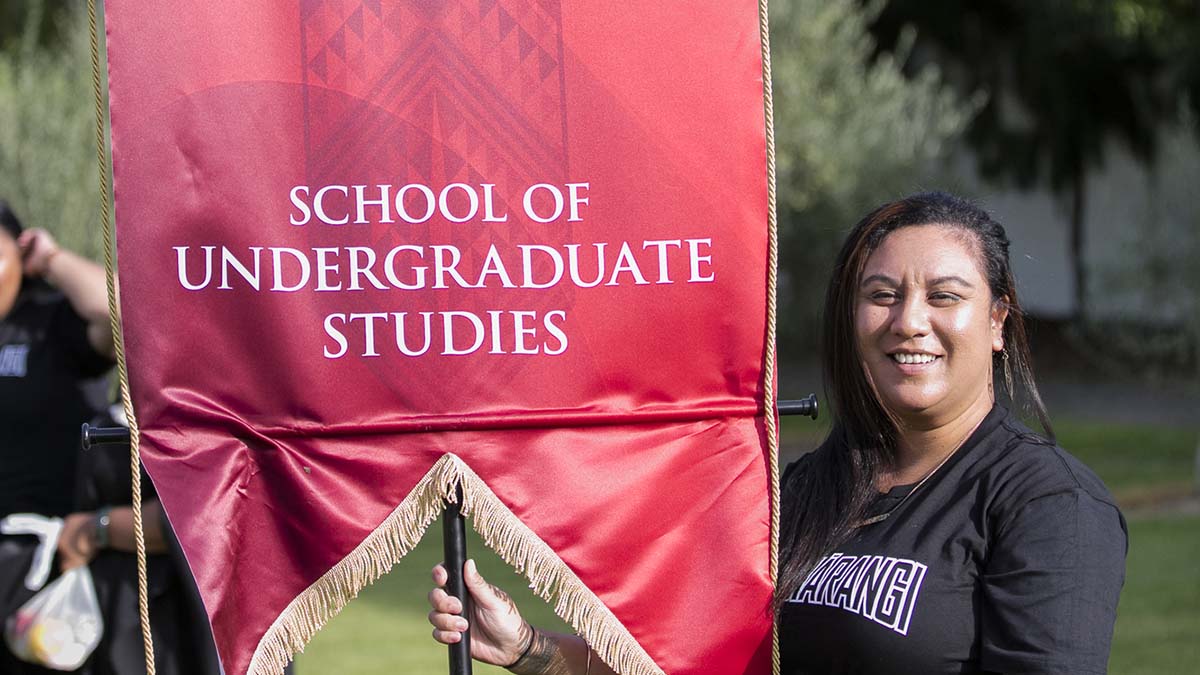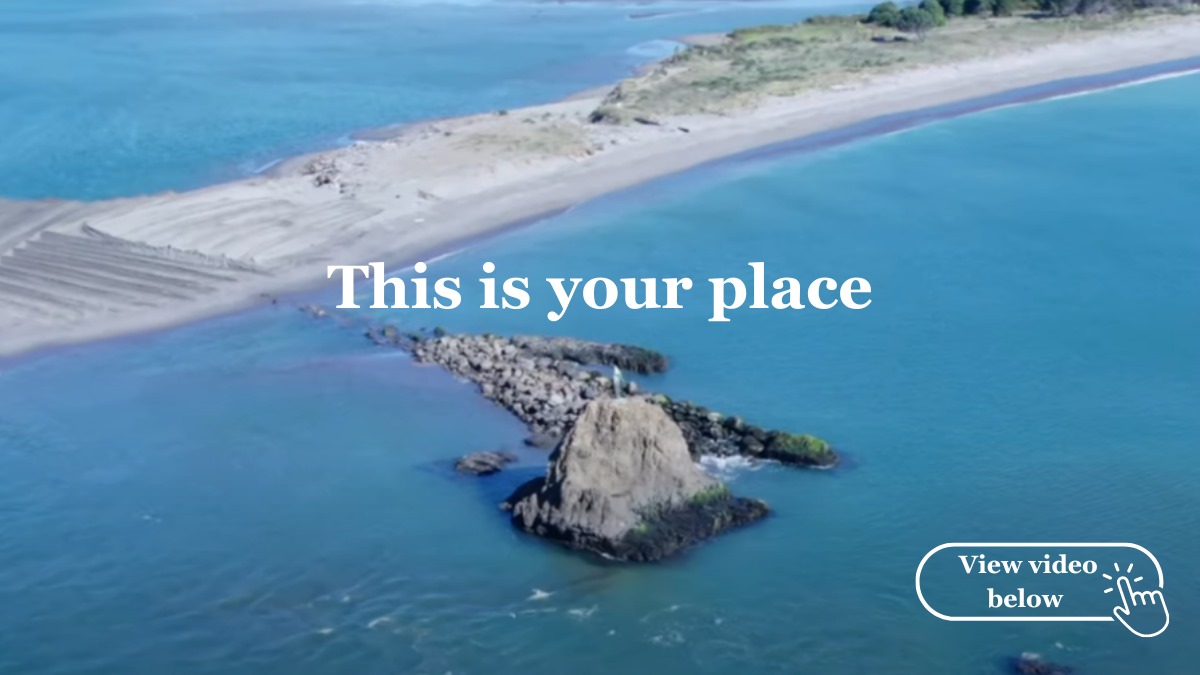Bachelor of Education
Te Tohu Paetahi Ako: Bachelor of Education (Teaching)
Inspire. Educate. Lead. Help shape the next generation of learners. Become a culturally confident teacher and make a difference.
Begin your journey to become a teacher with the Te Tohu Paetahi Ako: the Bachelor of Education (Teaching) at Te Whare Wānanga o Awanuiārangi.
This teaching degree is designed to prepare culturally responsive, confident, and capable teachers for Aotearoa’s diverse learning environments. Educators who can make a real difference in the lives of tamariki and whānau.
Whether you’re passionate about early childhood or primary education, this programme blends academic excellence with Māori values and pedagogy. The Bachelor of Education (Teaching) is your pathway to a rewarding career where you can inspire, lead, and grow the next generation.
Why Study the Bachelor of Education – Teaching?
Culturally grounded education
Build cultural competency to engage diverse learners and communities with a strong Māori and indigenous worldview.
Real-world experience
Placements in kura, kōhanga reo, mainstream schools and early childhood centres.
Taught by expert kaiako
With deep knowledge of teaching, gain mastery in child development, lesson planning, assessment, and teaching practice.
Full Accreditation
NZQA accredited course producing graduates ready for employment or postgraduate study. Graduates are prepared for teacher registration with the Teaching Council of Aotearoa New Zealand
Flexible Study & Supportive learning environment
Options to balance work, whānau, and study with blended delivery including online learning, wānanga and in-person noho. Experience study grounded in kaupapa Māori values, supporting your journey.
What you’ll learn in Te Tohu Paetahi Ako: Bachelor of Education - Teaching
- Teaching practice through classroom placements
- Te Ao Māori, tikanga Māori and culturally responsive pedagogies
- Child development, curriculum design and assessment
- Inclusive education and support for diverse learners
- Leadership, professional ethics, and education theory
- Specialise in either Early Childhood Education or Primary Teaching in mainstream and Māori-medium settings
Who should apply?
- Aspiring teachers who want to work in Māori, Pasifika or mainstream settings
- Career changers ready to make a positive impact
- School leavers passionate about children, learning and community
- Those committed to equity, te reo Māori, and Māori success in education
Dates
19 Jan 2026 to 08 Nov 2026Duration
3 years full-time study, 42 weeks per year (you must re-enrol each year)Commitment
Blended learning including noho, wānanga, online learning and self-directed learningApplications close
13 Feb 2026Locations
Whakatāne, Tāmaki Makaurau, Tai TokerauRequirements
Select link belowPathway to
Select link belowFees
2026 Tuition fee: $7231.00, Course related costs: $377.00, Total: $7608.00 per enrolled year (note fees are updated annually)First year courses
AKA 501 Teaching Foundations
Course Type: Elective
Āhuatanga Māori and the relevance to teaching and learning is the focus of this course. Culturally responsive pedagogical approaches are examined to promote tauira and teacher confidence when integrating language and culture within education settings.
- Tauira will be ngākaunui (kindly disposed towards) learning te reo me ōna tikanga Māori to enhance their cultural responsiveness and commitment to Te Tiriti o Waitangi relationship. Tauira will also explore education initiatives which have embraced the cultural knowledge and taonga of Māori and Indigenous learners.
AKA 502 Teaching Development
Course Type: Elective
Āhuatanga Māori and the relevance to teaching and learning premises this course. Culturally responsive pedagogical approaches such as tauira’ prior experiences are examined to promote tauira and teacher confidence when integrating language and culture within education settings.
- Tauira will ruku hōhunu (delve deeper) and further their study and use of te reo Māori me ōna tikanga through a Te Tiriti o Waitangi culturally responsive lens. Tauira will also explore education initiatives that have embraced the cultural knowledge and taonga of Māori and Indigenous learners enabling their success in education.
AKA 503 Teaching Extension
Course Type: Elective
In this course, culturally responsive pedagogical approaches are examined through Āhuatanga Māori. The relevance of this examination will be applied to teaching and learning in rumaki reo settings. Principles of teaching practice which promote tauira and teacher confidence when integrating language and culture within learning spaces are explored. The implementation of those principles enabling success in education is also explored.
- Tauira will further their study and use of te reo me ōna tikanga Māori at an advanced level. They will select the topics through which to enhance their cultural and linguistic knowledge.
AKA 504 Professional behaviour in Teaching
Course Type: Core
- This course examines the expectations facing Kura Auraki and Kura Māori (Kura Kaupapa Māori, Kura ā-iwi, Kura Mana Māori) and early childhood teachers in their professions, and strategies necessary to meet those expectations in Aotearoa New Zealand.
AKA 505 Curriculum 1
Course Type: Core
- This course explores Te Whāriki, Te Marautanga o Aotearoa, and the New Zealand Curriculum documents. The principles, values, and visions within in each curriculum document and alignment with the Statement of National Education and Learning Priorities (NELP), will be analysed. The practical application of each curriculum document within schools and early childhood settings will be explored and how the settings interpret the documents to develop localised curriculum.
AKA 507 Learning development
Course Type: Core
This course explores human developmental stages from early childhood to middle childhood with a particular focus on the impact and implications for educational settings in Aotearoa New Zealand. This course will introduce neuro-divergency and some of the effects on learning and development throughout the stages in childhood.
- This course will focus on western and indigenous perspectives and theories of human development, with an emphasis on child development.
AKA 508 Practicum 1
Course Type: Core
Practicum 1 is a two three-week block-practicum that provides students with experiences in the running of classrooms, pedagogy, classroom management, professional behaviour, and the application of theory to practice within schools. In these settings students are provided with an opportunity to observe, reflect, assist, teach, and develop professional competencies.
- It is expected that students will grow their understanding of classroom organisation, planning, preparation, and management, while practicing these skills when opportunities arise. In this course students are introduced to schools in terms of the ‘whole of organisation’ structure and framework.
AKA 509 Practicum 2
Course Type: Core
Practicum 2 is a structured learning experience designed to enhance students' teaching abilities by focusing on specific areas that require improvement or development. The Programme Staff, Associate Teacher (Kaiako Hāpai), and Student collaborate to identify the areas of focus.
- During Practicum 2, students will spend one block per week inside an education setting, actively observing and participating in teaching practices. This placement occurs separately from the Practicum 1 experience.
Second year courses
AKA 601 Assessment, planning and preparation.
Course Type: Core
- This course examines three key factors of effective teaching in Aotearoa New Zealand educational settings, preparation, planning, and assessment. Planning and organisation include yearly planning, term planning, unit planning, and lesson planning. Effective planning strategies are explored. Preparation ensures that planning and organisation align to practices and delivery in terms of learning opportunities. The principles and practices of assessment and evaluation in teaching and learning contexts inclusive of the diverse learner is critically examined. Common assessment tools, moderation, and the assigning of overall teacher judgements of student progress and achievement will be explored along with assessment for learning approaches.
AKA 602 Pedagogy 1
Course Type: Core
- This course is designed to introduce pedagogical approaches teachers will use in the classroom. Six pedagogical approaches will be examined: Ako, Constructivist, Collaborative, Integrative, Reflective and Inquiry Based Learning. It provides an overview for students to articulate, critique and explain pedagogical practices in the research literature and the opportunity to explore and develop their own pedagogical approach in response to the research. The course will reinforce pedagogical practices that align to progress achievement in Literacy and Numeracy.
AKA 603 Curriculum 2
Course Type: Major
The course aims to evaluate the influence of the statement of National Education and Learning Priorities (NELP) on learning programs, as experienced during Year One Practicum Placement, while enhancing students’ understanding of the New Zealand Curriculum and Te Marautanga o Aotearoa documents. This will be achieved through an examination of their vision, values, and principles, and equipping students with the knowledge and skills necessary to comprehend the Key Competencies and assessment practices essential in measuring student progress.
- The course will integrate students’ prior curriculum knowledge of English, Mathematics and Music (Sound Art) and Visual Art strands of The Arts from Curriculum 1 and provide an opportunity to explore learning programs that meet the curriculum expectations for Science, Technology, and the Drama strands of The Arts.
AKA 605 Relationships
Course Type: Core
This course will develop and enhance students’ ability to foster and maintain positive relationships within various education sectors inclusive of, learners and their whānau, colleagues, and members of the community. Potential barriers to establishing effective relationships and how to alleviate these barriers will be critically analysed.
- This course will promote collaborative teaching practices required to maintain relationships within educational settings. Te Tiriti o Waitangi principles of partnership, participation, and protection and how these principals can impact positively on relationships in educational settings will be analysed.
AKA 606 Practicum 3
Course Type: Core
Practicum 3 is a six-week block-practicum within relevant educational contexts where teacher students will be expected to demonstrate practices to fulfil the role and professional responsibilities of a registered teacher.
- Students will observe, plan, prepare, implement, and evaluate programmes using appropriate assessment and planning tools for schools or early childhood settings.
AKA 607 Practicum 4
Course Type: Core
Practicum 4 is a structured learning experience designed to enhance students' teaching abilities by focusing on specific areas that require improvement or development.
The programme staff, Associate Teacher (Kaiako Hāpai), and student collaborate to identify the areas of focus.
- During Practicum 4 students will spend one block per week inside an education setting, actively observing and participating in teaching practices. This placement occurs separately from the Practicum 1 experience.
Third Year courses
AKA 701 Inclusive teaching
Course Type: Core
- This course critically analyses inclusive education in Aotearoa New Zealand schools and early childhood education settings as authorised by Success for All, National Education Learning Priorities (NELP) and Tapasā documents. The practices, theories, and indigenous perspectives to identify and plan programs for learners with a range of diverse learning needs will be critically analysed. Neurodiversity and the impact on learners will be critically examined to prepare student teachers for the diverse classrooms in Aotearoa New Zealand.
AKA 702 Pedagogy 2
Course Type: Core
This course provides students with an opportunity to view pedagogy as an effective tool for facilitating teaching and learning. It is designed to enable students to review and re-evaluate their teaching practices and to draw out the connections between pedagogy, teachers, students, and learning.
The course aims to reinforce the pedagogical practices that align with progress and achievement in Literacy and Numeracy.
- Through this course, students will be able to develop a personalised pedagogical approach by reframing their current practices, conveying, and facilitating new techniques that align with their desired outcomes.
AKA 703 Curriculum 3
Course Type: Major
This course aims to advance students’ knowledge and comprehension of the New Zealand Curriculum and Te Marautanga o Aotearoa documents. A focus is placed on delving deeper into the Key Competencies and their seamless integration across diverse learning programmes.
Students will reflectively analyse their Year Two Practicum experiences and critically examine the development of Key Competencies within children, emphasising the importance of nurturing these competencies in young children.
The course involves a thorough examination of the learning programmes tailored to meet the curriculum requirements of Health and Physical Education, Social Science, Aotearoa New Zealand’s Histories and Learning Languages.
- By adopting a comprehensive approach of educational frameworks, students will develop pragmatic insights into efficacious learning experiences across various curriculum areas.
AKA 704 Data analysis
Course Type: Core
This course aims to explore the practice of utilising data analysis from educational assessments to establish learner agency in educational settings. The focus is on enabling students to make informed choices that will engage and empower them as the owners of their learning.
The course emphasises examining strategies that facilitate student agency, including developing self-regulating skills, taking ownership of their learning, and encouraging student voice.
- The course will analyse diagnostic, formative, and summative assessment tools to monitor student progress and achievement across the curriculum. These assessment tools and approaches will be examined and utilised for next steps in developing agentic learners.
AKA 706 Practicum 5
Course Type: Core
In this course, students will complete an eight-week block teaching experience providing them the opportunity to utilise the knowledge, skills, and dispositions/competencies of a teacher. Further teaching practice, including full responsibility (in collaboration with the associate teacher) for planning, teaching, and managing the whole class will accentuate their abilities.
During the eight weeks (and beyond) practicum, students will implement reflective and culturally responsive practices that promote the holistic development and well-being of tamariki, to foster a safe, positive, and inclusive learning environment. Students will engage in critical reflection and thinking about their teaching practice, identifying areas for growth and improvement and relevant professional development opportunities. Students will demonstrate an advanced understanding of assessment practices and use assessment data effectively to inform instruction, provide meaningful feedback, and support student progress and achievement.
- Critical inquiry into the social and cultural contexts of education will further their understanding of the ethical and social implications of the teaching and learning process.
AKA 707 Practicum 6
Course Type: Core
Practicum 6 is a structured learning experience designed to enhance students' teaching abilities by focusing on specific areas that require improvement or development. The programme staff, associate teacher (kaiako hapai), and student collaborate to identify the areas of focus.
During Practicum 6, students will spend one block per week inside an education setting, actively observing and participating in teaching practices. This placement occurs separately from the Practicum 3 experience.
- The specific elements of teaching practice might include (and that align to Our Code, Our Standards): planning, assessment and moderation, data analysis, differentiation of practice, culturally responsive approaches, pedagogies, and practices, specific pedagogical strategies, acceleration of student progress and achievement, curriculum subject knowledge, learning programme reflections and adaptations, catering to students with learning needs, and classroom management and organisation.
Ngā korero a ngā tauira
Student's voice
Tomo mai ki Awanuiārangi
Experience Awanuiārangi
Whakapā mai/Contact us
Tania Doherty
- Email: tania.doherty@wananga.ac.nz
Te Aiokura Kopua-Smith
- Phone: 027 297 7305
- Email: teaiokura.kopua-smith@wananga.ac.nz
Interested? Make an enquiry
We will email you an info pack
